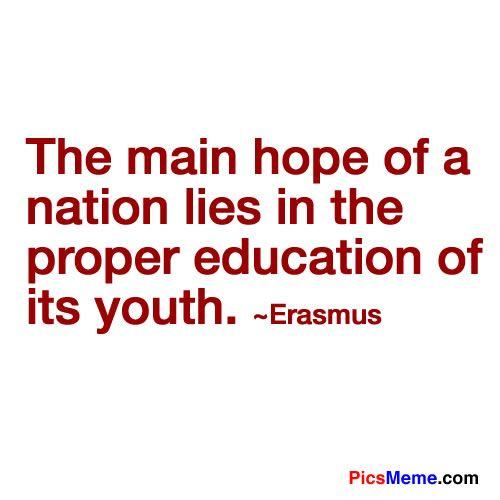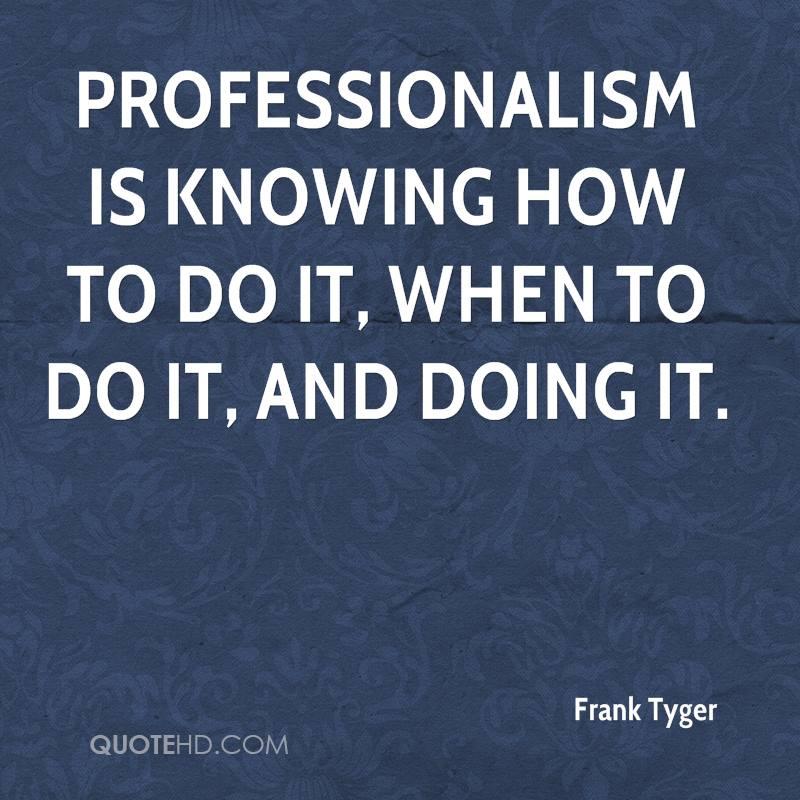Blog
-
Faith
- On 18/03/2021
- In Special Report
 The issue of belief in God is very abstract to people because it lacks assessment and evaluation yardsticks. This is why prayer is usually misconstrued as mere wishes of the mind.
The issue of belief in God is very abstract to people because it lacks assessment and evaluation yardsticks. This is why prayer is usually misconstrued as mere wishes of the mind.
Unfortunately, wishes live in the abstract realm of life though always sound positive when considered as a prayer and equally sound corrosively negative when considered as a curse to show the nakedness of wishes. This suggests that lazy people shall have the best of access to good things in life and when they are not realizing on time, they may resort to dastardly acts against all odds to have their way. If we now equate this to prayer, one would justify crimes been committed by a lot of people to live in affluence with influence in the comfort zone of life wielding power to oppress others.
The position of religion through their various scriptures on the issue of faith is that of a well-ordered set of rules noted to be divine as rungs of the ladder for man to climb to his desired social needs because religion is regarded as a divine construct that is meant for human faith-building in order that such an individual may align with the set of the divine laws to be able to establish a perfect God/man relationship where 100 percent of human social desires would be realized as a matter of destiny actualization for realization.
Unfortunately, this is a function of the need to keep on with the body preservation from sins and crimes and soul purification from devilish thought processes to be able to obtain a very high degree of a state of piety. In this wise, the fundamental needs of man are perfectly achieved with the tranquility of mind and well, safe and secured environment for the purpose of peaceful co-existence.
Under this condition the issue of living exemplary lifestyles measurable by a high content of integrity where respect is commanded rather than been enforced from the society, such people are promised a hitch-free comfort zone of life on earth and paradise of the hereafter.
Unfortunately for mankind, they misconstrue wealth acquisition on earth and earthly power to dominate others as a yardstick to the achievement of destiny. This is erroneous because achievers in the process of acquiring their wealth would have trampled upon the fundamental human rights of others without care which would involve the penalty of divine intervention to avenge the cause of the oppressed.
We can't, therefore, use this as faith-based destiny realization because faith has a direct correlation with destiny both of which are pure of the divine construct.
The issue of faith demands for just worship with an adulterated stand of belief in our chosen religion for it to walk the talk of the scripture for us as adherents to be able to accomplish without hitch our destiny.
When we fall short of this grace that demands due process in every step we take destiny becomes the destination for faith to become fate.
It is unfortunate that we forget the difference between faith and fate, the former has a divine connotation while the latter is achieved through social construct borne out of human inordinate ambition for materialism without considering due process demanded by faith or religion.
The parable of sowing the words of God reveals four classifications of adherents.
1)Those who receive the words of God but because of psychological troubles of the mind and the craze for materialism, the word grows wings and flies away with the tide of time for satan to feed on. This category is without a guide.
2)Those who keep bad company will run into the pressure of bad advice not to retain the words of God.
3) Those who have a negative mindset will never open their hearts for the words of God to be deeply rooted. In them, there is no foundation for the seed to germinate and grow.
These three categories of people take more than 99 percent of religious worshippers. They only carry the names of their religious affiliations without walking the talk of their scriptures. They only live in the rhetoric of beliefs that can in no way support and sustain them to realize their faith. They grope in the darkness of the world for their lives to be terminated abruptly as their fate, even though they may possess the wealth of the world, they would surely miss and lose heaven, to a disruptive effect of the people they might leave behind. The firmness of purpose in one's religion would afford one to achieve maximally a fate that may be very near one's destiny.
Build your faith in your religion based on the scriptural dictates and guide, not to live a fatalistic life of the human construct of fate. Walk the talk to be prosperous, safe, hale, and hearty without any form of regret. No religion teaches evil.Prof. Sabitu Olagoke
Founder, Spiritual Head and Grand Imam Shafaudeen-in-Islam Worldwide, Wakajaiye, Ibadan, Nigeria
-
Food Blockade-Labor Leaders are Asleep-Comrade Emelieze
- On 08/03/2021
- In News
 The silence of labor leaders in Nigeria during the six-day blockade mounted against trucks conveying livestock and foodstuff at Jebba from the North to the South has been described as a manifestation of the docility of the leaders in the face of the myriad of challenges confronting Nigerians.
The silence of labor leaders in Nigeria during the six-day blockade mounted against trucks conveying livestock and foodstuff at Jebba from the North to the South has been described as a manifestation of the docility of the leaders in the face of the myriad of challenges confronting Nigerians.
This view was expressed by a former Chairman of the Trade Union Congress(TUC) Oyo state council and presently an ex-officio of the TUC in the state, Comrade Andrew Emelieze in a chat with Poverty Line. ''The labor leaders have gone to sleep on the plight of Nigerians. What they attempt to achieve is a lost battle because they are all docile. The police are still extorting money from transporters, this is an indication that the corruption fight in Nigeria is a hoax. The blockade was justified, it gives credence to the issues of insecurity we have been discussing in Nigeria. The labor leaders are self-centered and self-serving, they do not have the interest of Nigerians in their minds anymore'', Comrade Emelieze concluded.
''The labor leaders have gone to sleep on the plight of Nigerians. What they attempt to achieve is a lost battle because they are all docile. The police are still extorting money from transporters, this is an indication that the corruption fight in Nigeria is a hoax. The blockade was justified, it gives credence to the issues of insecurity we have been discussing in Nigeria. The labor leaders are self-centered and self-serving, they do not have the interest of Nigerians in their minds anymore'', Comrade Emelieze concluded. -
Sudan Switches to Federal System of Government
- On 05/03/2021
- In News
 Sudan is set to abandon the 18 state structure of the country and opt for several regions.
Sudan is set to abandon the 18 state structure of the country and opt for several regions.
The Sovereign Council issued a statement on Thursday to the effect that the country has adopted the Federal system of Government.
"The President of the Council, Lieutenant General Abdel Fattah Al-Burhan, issued a constitutional decree, establishing a regional (federal) system of government," the statement disclosed.
According to the peace agreement signed on On October 3, 2020, the peace agreement was signed to the effect that there would be a constitutional conference on governance.
The Conference would determine the number and borders of the regions, in addition to their structures and powers, including the levels of governance and administration.
It is expected that the conference will divide the country into 6 regions, which are Khartoum, Darfur, Kordofan, Eastern Sudan, Northern, and the Central Region.
The Central Region includes the states of Jazira, Sennar, and the Blue Nile, the Northern Region includes the states of the River Nile and the North, while the Eastern Region includes the states of Gadaref, Kassala, and the Red Sea, and Darfur Region encompasses its current 5 states.
-
Contentment
- On 05/03/2021
- In Special Report
 Contentment achieved through extrinsic perspective has to do with human activities in acquiring wealth to meet up with the needs in the areas of economic, environment and the kind of people that surrounds one from friends and family perspective, whose character and general attitudinal disposition aligns with one's concept of how life should be.
Contentment achieved through extrinsic perspective has to do with human activities in acquiring wealth to meet up with the needs in the areas of economic, environment and the kind of people that surrounds one from friends and family perspective, whose character and general attitudinal disposition aligns with one's concept of how life should be.When it is measured through material acquisition, achievement through legitimate means only, where elements of fraud are absent through the dignity of labor approach.
Contentment may be inheritable from morally conscious parents, who rear their children in an environment of discipline, such people naturally exhibit these characteristics to the advantage of having the ability to cope with any standard set as value norms in the places of work to the areas outside one's home, including the foreign lands, such people will never live by complaint and they will be diligent at work, with exemplary lifestyles expected of best global practices, taking into consideration the expected ethical values to follow.
Contentment as a value may be infectious through the polarization effect from those friends, peer groups, subordinates, or bosses at work, who might have upheld the concept of contentment or self-satisfaction around one.
Contentment must be entrenched as a national value where leaders are expected to role model exemplary lifestyles as the general norm.
Naturally, economic equations are not disrupted but applied to achieve maximum yield for the system because nobody will live a life of vanity and there would be no need for anybody at whatever level, he or she may find themselves, to envy others that have more, most especially those who are in positions of higher pedigree because one will realize that in the dignity of labor, your efforts or inputs must be commensurate to your earning power, even in the political setting, rivalry to usurp power or to seek for positions of leadership that do not have direct potentials of capability as may be relevant to the responsibilities of such offices will be highly minimal if not absent because people will realize the need to develop themselves to have worthy certificates that can be defended when finally one finds himself in such a position that would require expertise and some technical skills to support the mainframe of service delivery.
Where the contentment value is absent, greed and avarice naturally build up into Timocracy which usually characterizes covetousness of power, without the wherewithal to manage it because the propelling force would become a biological interference whereby you would want to wield power around yourself mainly to have undue access to the spoils of office at the expenses of the demands of such an office to care for the people and to build the system.
In such a situation, the arrays of scenes of poverty, hunger, diseases, and summarily a state of underdevelopment emerges.

Contentment as a value usually manifests at the homefront to demand parental sensitivity on their children's behavior and disposition towards material things.
It is better cured at their Id level that is dominated by the factors of an impressionable age when one can easily remove or add garbages of interferences into the lives of these children. At the ego level of development of a child, usually dominated by the adolescent stages, the manifestation of lack of contentment easily becomes pronounced as greed or a state of insatiability.
Lack of contentment, therefore, usually aids one into corrupt practices with a costly undertone of greed and acquisition of materials to live above one's means.
It is, therefore, necessary for the four domains of the spheres of life-education-culture, education, religion, and politics through the National Orientation Agency to promote contentment as a must of cultural material for the society to be conscious of the need for ethical integrity to be based on the value orientation of contentment.
This is an effective way to achieve maximally in the areas of good governance and credible leadership for the society to attain zero tolerance to corruption and sustainable national discipline since the people constitute the aggregate of many individuals who deserve to be socially responsible for the success of democratic governance to offer us a safe and secure society, tranquillity of the mind, environmental peace through the value orientation of contentment.
Aspiration through legitimate means is the only acceptable solution to improving the contentment level.
Founder, Spiritual Head and Grand Imam Shafaudeen-in-Islam Worldwide,Wakajaiye, Ibadan, Nigeria
-
Ignorance as the Guiding Light
- On 23/02/2021
- In News
 When the leadership at the Federal and State levels ascended the seat of power within the last six years, the goodwill and support, was not only overwhelming but total.
When the leadership at the Federal and State levels ascended the seat of power within the last six years, the goodwill and support, was not only overwhelming but total.
Presently, people are complaining bitterly in every part of the country, there are lots of frustrations everywhere, but sadly, the leadership is not listening, while its strategies remain rigid.
Potable water is now a luxury in most states of the federation, while electricity has now become a tool for extortion. Of worry is the price of kerosene, Nigerians watch helplessly as the price take an upward leap.
In the face of the absence of basic amenities for the people's survival, those in charge are sinking billions of Naira into the ''pool'' of insecurity.
An emerging fact is that ignorance, mediocrity, nepotism, indifference, and inertia have become visible signposts of the administration at all levels. -
Ask God Only for all your Needs
- On 23/02/2021
- In Special Report
 By the nature of our creation as mankind, we will continue to live by the sense of want using the yardstick of human physiological needs for his or her wellness.
By the nature of our creation as mankind, we will continue to live by the sense of want using the yardstick of human physiological needs for his or her wellness.
Human nature while still alive will continue to live by the following factors that determine his or her state of wellness: The mind that must not be troubled needs the spiritual tranquillity of the mind which is most often derived from our social satisfaction.
The body needs a balanced diet or good nutrition to grow and the health services to have and maintain sound health.
Fairness in the participation of one in his community, the work through ethical practices for productivity and profitability needs rational efficiency to be able to deliver. Finances determine social symbols and status in society to be classified as responsive and responsible.
Human emotional outbursts and essence of control to keep down possibilities of having stress, frustration, or depression.
Considering the above, man will continue to be in a sense of want while he gropes in the darkness of the world to make ends meet.
There is, therefore, a limit to what man can achieve in life in his pursuit of social desires without divine intervention. This is why the Almighty God admonishes all humans to do His will and get closer to Him. This is the basis upon which all religions are built. All faith-based houses of God, therefore, must teach aright the scriptures for the adherents to imbibe the spirit of moral discipline as a basic condition under which he can have the opportunity to have access to divine communication which all religions offer as the prayer aspect of religious exercises.
For a man to have unrestricted and unhindered access to dialogue with God, he must be ready to culturally adopt and adapt to the conditions laid down by God in the scriptures.
For instance, Psalm 24 :3-4 refers, ''3 Who shall ascend into the hill of the Lord? or who shall stand in his holy place?
4 He that hath clean hands, and a pure heart; who hath not lifted up his soul unto vanity, nor sworn deceitfully.''
In the same vein the Holy Quran 12: 108 equally shows us the way to be very close to God while doing His will.
Say thou, '' This is my way. I do invite onto Allah: with certain knowledge. I and whoever follows me(Prophet Muhammad). Glory to Allah and never will I join gods with Allah.''
Both verses of the Holy Quran and the Holy Bible emphasizes the need to accept and live by the holiness of Allah through pure hearts.
The Holy Bible, therefore, teaches us that we should continue to ask God for all our needs even when we are very hardworking for ease of maximally achieving our social desires.
Matthew 7: 7-12 refers, ''7 Ask, and it shall be given you; seek, and ye shall find; knock, and it shall be opened unto you:
8 For every one that asketh receiveth; and he that seeketh findeth; and to him that knocketh it shall be opened.
9 Or what man is there of you, whom if his son ask bread, will he give him a stone?
10 Or if he ask a fish, will he give him a serpent?
11 If ye then, being evil, know how to give good gifts unto your children, how much more shall your Father which is in heaven give good things to them that ask him?
12 Therefore all things whatsoever ye would that men should do to you, do ye even so to them: for this is the law and the prophets.''
However, the most important role that will usually facilitate human requests to be answered by the almighty God is that we must do to other people the same thing we want them to do to us, this is a reminiscence of the law of karma for natural social justice. This is the meaning of the law of Moses and the teaching of the prophets. We need to realize that our religious sects or denominations are nothing more than a school of a faith-based building where we learn about how best we can have a perfect streak of God/man relationship.
Religious sentiments must not becloud our sense of judgment and recognition of our creator as the source of our strength which cuts across our pursuit of wellness through social desires while alive and our struggles to enter the kingdom of God.
In every religion, the factor of God and godliness exists even beyond our views and perception of the prophets, gods, and goddesses. Onto God, therefore, we must be very close to having direct access to divine communication.
The Holy Quran 2: 186, equally stands on these categorical statements upon which every mortal must stand, without waiting for the period of travail that will demand our running helter-skelter to seek the favor of God for the cure.
''When My servants ask thee concerning Me. I am indeed close to them. I respond to the prayer of every supplicant when he calleth on Me: That they may walk in the right way :(Nutrition, Health issues and Wellness assured).''
To be wise, let us ensure body preservation from sins and criminalities as well as soul purification from the devilish thought processes to be wholesome.
For us to be close to God, the almighty Allah, not to lose the opportunities of having access to His grace with pure hearts to continue, therefore, to ask God for all need.Prof. Sabitu Olagoke
Founder, Spiritual Head and Grand Imam Shafaudeen-in-Islam Worldwide, Wakajaiye, Ibadan, Nigeria
-
Namibia Register 113 361 candidates For Final Secondary School Exams
- On 15/02/2021

 The Ministry of Education in Namibia has registered 113 361 candidates for the 2021 National Secondary School Certificate Examinations(NSSCE)
The Ministry of Education in Namibia has registered 113 361 candidates for the 2021 National Secondary School Certificate Examinations(NSSCE)
The Ministry made this disclosure in a statement by its executive director Sanet Steenkamp.''This year 113 361 candidates, comprising of 21 648 NSSC ordinary level (new), 23 118 NSSC higher level, and 68 595 NSSC ordinary level (old) candidates, have been registered'', the statement disclosed.
-
A Feeble Initiative
- On 15/02/2021
- In Special Report
 The declaration of the Nigeria Immigration Service(NIS) relating to armed men within Nigeria is not only misleading but also devoid of visible professionalism.
The declaration of the Nigeria Immigration Service(NIS) relating to armed men within Nigeria is not only misleading but also devoid of visible professionalism.
The series of criminal incidents involving gunmen based in the forests in different parts of the country punctures the declaration of the NIS, which seems to be a feeble effort to shield those in charge from the glaring inability to bring the activities of its creation under control.
Those who are in the service should undergo retraining to bring them abreast of modern trends. The same applies to others with related functions, which revolve around the protection of lives and property.
Of great worry, however, is the unbroken loyalty of a sizable number of uniformed personnel to criminals, who, despite all odds ensure that the former have an unhindered flow of patronage and funding.
